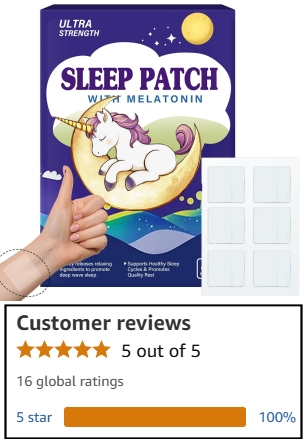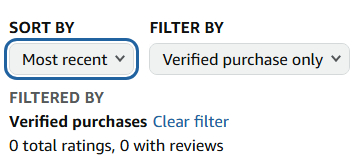When MrConsumer is seriously contemplating buying a particular product, he scrutinizes online reviews by others who have purchased the item to see what their real-world experience with it has been. Many of you probably do the same thing.
The trouble is that some unscrupulous sellers try to manipulate online reviews to make the product seem better than it really is. They might pay people to post fake reviews, they might write and post reviews themselves, or they might selectively promote good reviews or try to bury or delete bad reviews.
 As the leading online seller, Amazon certainly can be a target for fake reviews. A friend who was looking for remedies to help him sleep better, scoured Amazon looking for possible solutions. About six months ago, he came upon this product called “Sleep Patch” which was highly rated there.
As the leading online seller, Amazon certainly can be a target for fake reviews. A friend who was looking for remedies to help him sleep better, scoured Amazon looking for possible solutions. About six months ago, he came upon this product called “Sleep Patch” which was highly rated there.
He was suspicious because the product at the time had 16 reviews on Amazon and they all just happened to be five-star. What are the odds of everyone loving this product? First red flag. And all the reviews were posted on the same day – December 18, 2024 – a mere four weeks after the product was first offered there. Second red flag.
We decided to take a little closer look at this product listing and came up with some interesting additional findings. Watch out for these additional red flags.
*MOUSE PRINT:
The brand is zeBrush, but there doesn’t seem to be a website for this company.
None of the reviewers apparently bought the product on Amazon because none of them are “verified purchasers.”
 We cannot find this product for sale on any other website. So how did those 16 people write reviews of the product? If they got a free sample, they would have had to disclose that at the beginning of their review under FTC rules.
We cannot find this product for sale on any other website. So how did those 16 people write reviews of the product? If they got a free sample, they would have had to disclose that at the beginning of their review under FTC rules.
In looking at the other reviews written by these 16 people, eight of them – 50% – also reviewed this barn door. Did all these people just coincidentally buy the same barn door? Come on.
Needless to say, there is something very fishy going on here. Amazon says, however, that they have various systems in place to help ensure that posted reviews are legitimate including using artificial intelligence. Perhaps they need to use real intelligence.
We all need to spend a little more time scrutinizing online reviews and not simply accept the posted opinions and ratings at face value.
NOTE: Due to a technical glitch, some of you were unable to post a comment last week. That function has been restored, so feel free to try again. Sorry for the inconvenience.





 As the leading online seller, Amazon certainly can be a target for fake reviews. A friend who was looking for remedies to help him sleep better, scoured Amazon looking for possible solutions. About six months ago, he came upon this product called
As the leading online seller, Amazon certainly can be a target for fake reviews. A friend who was looking for remedies to help him sleep better, scoured Amazon looking for possible solutions. About six months ago, he came upon this product called 